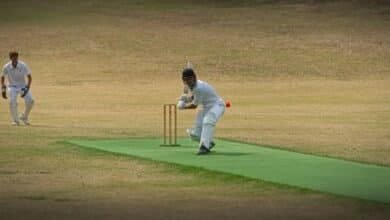Why Every Young Player Should Train Smarter

Young footballers dream of mastering their skills, playing at the highest level, and standing out on the pitch. Many believe the key to success is simply training harder—spending endless hours practicing the same moves.
Yet, some players struggle to improve while others seem to progress rapidly. The difference is not just effort but approach. Training more intelligently, not just more challenging, separates good players from great ones.
Traditional training methods often focus on repetition without refinement, leading to ingrained bad habits, slow progress, and even burnout.
Without structure, many young athletes waste valuable practice time on ineffective drills. The solution lies in a more intelligent approach that prioritizes technique, structured progression, and modern training tools that provide real-time feedback.
By adopting smarter training habits, players can accelerate their development, stay motivated, and perform better on the field.
The Problem with Traditional Training
Many young players dedicate countless hours to practice, believing that sheer effort will lead to improvement. However, training can become ineffective, frustrating, and even counterproductive without the right approach. Understanding the common pitfalls of traditional training is essential to unlocking true potential.
Repetition Without Refinement
Many young players believe that practicing a move repeatedly will naturally lead to improvement. While repetition is crucial, doing it without refining the technique can reinforce bad habits. If a player continuously performs a pass with incorrect form, that mistake becomes ingrained in muscle memory. Instead of just practicing, players need to focus on executing each movement correctly.
Lack of Structure in Self-Practice
Without structured training, Ballmaster players often engage in random drills that do not align with their development needs. A structured training plan breaks down skill-building into progressive steps, ensuring players master one aspect before moving to the next. Without this guidance, self-practice becomes ineffective, leading to slow or stagnant improvement.
Training Burnout and Motivation Loss
Repetitive drills with slight variations can make training feel like a chore. Young players, especially beginners, may lose interest if their practice sessions lack excitement and challenge. When training feels monotonous, players become less engaged, and their performance on the field may suffer. Keeping training engaging and interactive is crucial for long-term commitment.
Lack of Progress Tracking
Players who do not track their progress struggle to identify their strengths and weaknesses. It becomes difficult to set goals or adjust training techniques without a way to measure improvement. Progress tracking is essential for motivation, as it allows players to see how far they have come and what areas need further attention.
What Does It Mean to Train Smarter?
Training more innovatively is not about working less but making every session more efficient and purposeful. By focusing on technique, structured drills, and modern training methods, players can accelerate their development and see real improvements in their game.
Quality Over Quantity
Training smarter means focusing on the effectiveness of each practice session rather than the number of hours spent training. Instead of mindlessly repeating moves, players should ensure that each drill has a purpose. Short, high-intensity sessions with clear objectives often yield better results than long, unstructured practices.
Structured and Targeted Training
A structured training plan ensures players develop all aspects of their game, from dribbling and passing to shooting and agility. Every session should have a specific focus, such as ball control or speed, allowing players to build their skills gradually.
Using Modern Training Tools
Technology has transformed the way athletes train. Interactive training aids, such as football training mats and skill-tracking apps, help players practice efficiently by providing real-time feedback. These tools guide players through structured exercises, ensuring they stay on track with their development.
Gamification and Engagement
Making training fun and competitive increases motivation. Training programs incorporating challenges, skill progression, and rewards keep young players engaged. Gamification elements, such as earning badges or unlocking new drills, encourage players to push themselves while enjoying the process.
The Science Behind Smarter Training
Football training is not just about physical effort but also about how the brain learns and retains skills. Scientific research shows that structured practice, progress tracking, and small-space drills enhance muscle memory, decision-making, and overall performance more effectively than unstructured training.
Skill Acquisition and Muscle Memory
Skill development is a process that involves building muscle memory. When a player repeats a movement correctly multiple times, the brain forms neural connections that make the movement more natural. However, if players practice incorrectly, those same neural pathways reinforce bad habits. This is why precision is more critical than sheer repetition. Training more innovatively ensures that players develop good habits from the start.
Tracking Progress for Better Learning
Research shows that tracking progress significantly improves learning. When players can measure their improvement, they stay motivated and adjust their training strategies accordingly. Whether through video analysis, performance metrics, or interactive training apps, monitoring progress helps players refine their technique and reach their goals faster.
The Benefits of Small-Space Training
Many young players believe they need an entire field to train effectively, but small-space training is often more beneficial. Practicing in limited areas enhances ball control, quick decision-making, and agility. Training aids like football mats provide a structured way to develop these skills, allowing players to maximize their practice time even in small spaces.
Real-Life Examples of Smart Training
Many of the world’s top footballers have honed their skills through intelligent training rather than endless practice. Looking at their approaches and real success stories of young players, we can see how structured, goal-oriented training leads to noticeable improvements.
How Elite Players Train Smarter
Many of the world’s top footballers have succeeded by focusing on clever training methods. Lionel Messi, known for his incredible dribbling and close control, did not rely on physical strength to dominate the game. Instead, he honed his agility, decision-making, and technique through targeted drills. Similarly, Cristiano Ronaldo has emphasized the importance of analyzing performance and adapting training routines to maximize efficiency.
Success Story of a Young Player
Consider a young player who struggled with dribbling. Initially, they practiced by simply moving the ball back and forth without direction. The player began seeing real improvement after switching to a structured training system that broke down dribbling into progressive drills. They refined their skills more effectively by tracking progress and using interactive tools.
How to Start Training Smarter Today
Adopting a more intelligent training approach does not require drastic changes, but it does demand a shift in mindset. By setting clear goals, following a structured plan, using modern training tools, and tracking progress, any player can train more effectively and improve their performance faster.
Step 1: Set Clear Goals
Before starting any training session, players should define their objectives. Instead of practicing randomly, they should set specific, measurable goals, such as improving their first touch within a month or completing a certain number of successful dribbles per session.
Step 2: Follow a Structured Training Plan
A well-organized training plan should focus on different aspects of the game in each session. For example, a player might dedicate one day to dribbling drills, another to passing accuracy, and another to agility exercises. This prevents training from becoming repetitive and ensures balanced skill development.
Step 3: Use Interactive Training Tools
Incorporating modern training aids can enhance skill development. Football training mats, for example, provide guided drills that help players focus on precision and technique. Interactive apps can also offer instant feedback, allowing players to adjust their form and execution.
Step 4: Track Progress and Stay Motivated
Regularly reviewing performance helps players stay on track. Tracking progress, whether through video analysis, training apps, or self-assessments, allows players to see improvements and identify areas that need more attention. Setting small milestones and rewarding achievements keeps motivation high.
Conclusion: Train Smarter, Play Better
Young players who adopt more brilliant training techniques develop their skills more efficiently, stay motivated, and enjoy their practice sessions more. Instead of focusing on long, exhausting workouts, they should prioritize structured, high-quality training that targets key areas of improvement. Using modern tools, setting clear goals, and tracking progress are all essential components of intelligent training.
By making training engaging and compelling, young footballers can maximize their potential and elevate their game to the next level. The path to success is not about working harder but training with intelligence, precision, and purpose.





